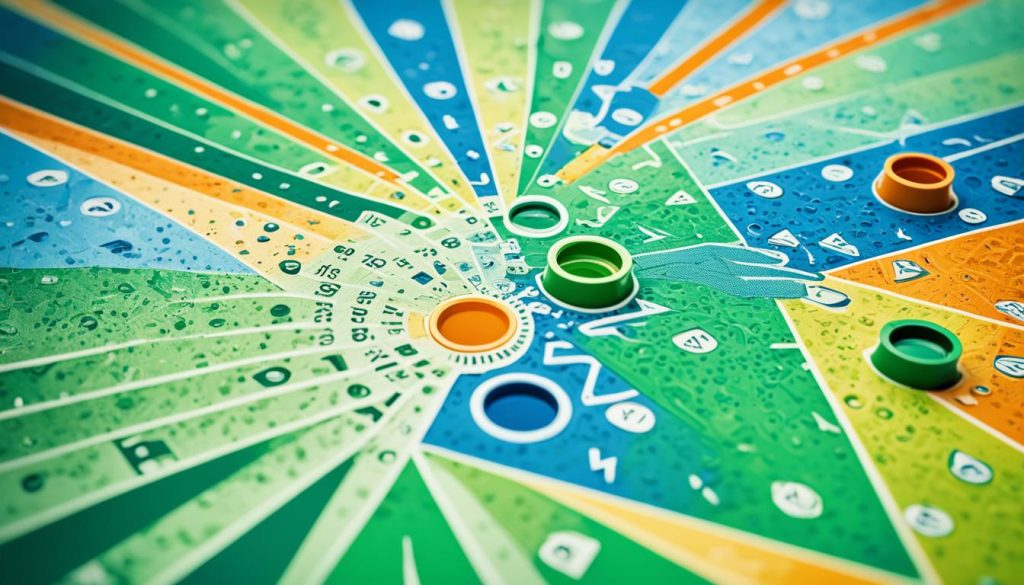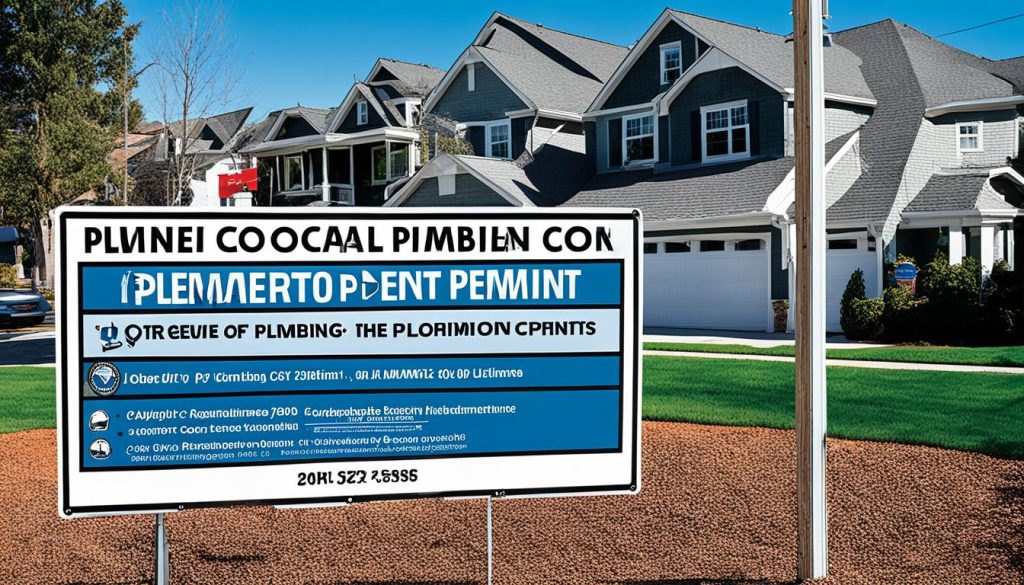Average Plumber Hourly Rate 2023 Guide
Did you know that the average plumber hourly rate in Canada for 2023 can range from $58 to $261 per hour or more? That’s a significant range, and understanding the factors that affect plumber costs is essential when planning your plumbing projects. From the type of job to the timing and location, there are various elements that contribute to the overall cost of hiring a plumber.
Key Takeaways:
- The average plumber hourly rate in Canada for 2023 can range from $58 to $261 or more.
- Factors that influence plumber costs include the type of job, timing, location, and materials required.
- Licensed professional plumbers typically charge between $104 and $170 per hour.
- Handymen can be hired for simpler projects at a lower rate of around $58 per hour.
- Understanding the breakdown of pricing is crucial before agreeing to any plumbing services.
Factors Affecting Plumber Costs
When it comes to hiring a plumber, multiple factors can influence the overall cost of their services. Understanding these factors can help you make an informed decision and ensure that you receive fair pricing for the job at hand.
Plumber’s Level of Expertise
The level of expertise of the plumber you hire can significantly impact the hourly rate you can expect to pay. Plumbers typically fall into different categories based on their experience and qualifications:
- Apprentice plumbers: Apprentices, who are still in training, often charge a lower hourly rate of around $20 to $44 per hour.
- Journeyman plumbers: These plumbers have completed their training and earned the necessary certification. Their hourly rates typically range from about $32 per hour.
- Master plumbers: Master plumbers oversee complex projects and can handle more advanced plumbing tasks. Hiring a master plumber can cost an additional $30 to $97 per hour.
Depending on your specific needs, it’s essential to find the right balance between cost and experience when choosing a plumber.
Complexity of the Job, Location, and Materials
The complexity of the plumbing job itself, as well as factors such as the location and materials required, can also contribute to the overall cost. More complex tasks, such as installing a new plumbing system or repairing intricate piping, may demand higher rates due to the level of expertise and time involved.
Additionally, the location of the project can affect pricing. Plumbers working in urban areas or areas with higher costs of living may charge more than those in rural or less expensive regions.
The materials needed for the job can also impact the cost. Specialized or high-quality materials may be more expensive, leading to an increase in the overall price.
Emergency, Weekend, and After-Hours Work
Plumbers often charge higher hourly rates or add additional fees for emergency, weekend, and after-hours services. It is common for these services to have a premium rate to compensate for the plumber’s availability outside regular business hours.
To avoid any surprises when it comes to costs, it is advisable to request multiple quotes and inquire about any additional charges for work performed outside of normal business hours.
Understanding the various factors that influence plumber costs can help you budget appropriately and make informed decisions when hiring a plumber.
Average Plumbing Service Rates
When it comes to hiring a plumber, understanding the average plumbing service rates is essential. These rates can help you budget for your project and make an informed decision. The average rate for most plumbing projects, excluding trip fees and materials, ranges from $91 to $156 per hour. This rate includes various factors such as the plumber’s wages, insurance premiums, union dues, overhead costs, equipment, vehicle maintenance and lease, and tools.
Some plumbers may offer flat rates for certain common issues to provide more transparency to their customers. These flat rates typically range from $130 to $520 for simple service calls, ensuring that customers know the exact cost upfront. However, it’s important to note that more complex plumbing jobs, such as installing water purification systems or repairing sewer lines, can have higher parts and labor charges.
It is highly recommended to request a detailed quote for your specific project. This will help you understand the cost breakdown and ensure that there are no surprises when it comes to the final bill. By knowing the average plumbing service rates and obtaining a detailed quote, you can make an informed decision before hiring a plumber.
The table below provides a breakdown of average hourly rates for common plumbing services:
| Plumbing Service | Average Hourly Rate |
|---|---|
| Leak Repair | $100 – $200 |
| Drain Cleaning | $80 – $150 |
| Fixture Installation | $120 – $250 |
| Pipe Replacement | $150 – $300 |
| Water Heater Installation | $200 – $400 |
It’s important to note that these rates can vary depending on factors such as the location, the complexity of the job, and the specific plumber you hire. Therefore, it is always recommended to compare quotes from multiple plumbers and take into account their experience and reputation before making a decision.
Common Plumbing Costs
When it comes to plumbing projects, the cost can vary depending on the specific task at hand. Here are some common plumbing services along with their average cost ranges:
| Service | Cost Range |
|---|---|
| Fixing a leak | $195 – $911 |
| Installing a water heater | $976 – $1,822 |
| Unclogging a drain | $162 – $390 |
| Repairing drain lines | $325 – $1,300 |
| Water main repairs and installations | $227 – $6,638 |
| New plumbing pipes | $227 – $6,638 |
| Sewer line cleaning and repairs | $227 – $6,638 |
| Installations and repairs for toilets, faucets, showers, and bathtubs | $227 – $6,638 |
These prices can vary depending on factors such as the complexity of the project, the materials required, and the location. It’s always a good idea to get multiple quotes from reputable plumbers to ensure you’re getting a fair price. Remember, paying a higher price for skilled and experienced professionals can often result in better quality work and greater peace of mind.
Additional Costs to Consider
In addition to the plumber’s fees, there are other costs to consider when planning a plumbing project. The cost of supplies and materials needed for the job can vary depending on the specific project and the chosen materials. It is important to discuss these options with the plumber and get estimates for each type of material.
Furthermore, certain plumbing projects may require permits, with costs ranging from $30 to $500. Permits may be necessary for tasks such as opening walls for plumbing work or making changes to the plumbing system in a home. It is advisable to check local building codes for specific permitting requirements.
Average Cost of Supplies and Materials
| Supply/Material | Average Cost |
|---|---|
| Pipes | $50 – $100 per linear foot |
| Fittings and connectors | $5 – $20 per piece |
| Toilets | $150 – $500 |
| Showerheads | $20 – $100 |
| Faucets | $50 – $200 |
Plumbing Permit Costs
| Permit Type | Average Cost |
|---|---|
| Basic plumbing permit | $30 – $150 |
| Water heater installation permit | $50 – $200 |
| Sewer line permit | $100 – $300 |
| Bathroom or kitchen remodel permit | $200 – $500 |
DIY vs. Hiring a Plumber
When it comes to plumbing projects, many homeowners find themselves pondering whether to tackle the task themselves or hire a professional plumber. The decision often revolves around the cost and the complexity of the project at hand.
For those with a knack for DIY, smaller projects like unclogging a drain or replacing a faucet can be relatively straightforward and cost-effective. With a bit of guidance and the right tools, these tasks can be successfully accomplished without incurring the expense of hiring a plumber.
However, it is crucial to assess the complexity and risks involved before venturing into more challenging projects. Repairing burst pipes or installing water heaters, for example, require specialized knowledge and skills. Hiring a professional plumber not only ensures the job is done correctly but also guarantees compliance with building codes, providing peace of mind for homeowners.
Ultimately, the decision to DIY or hire a plumber depends on a homeowner’s comfort level and familiarity with plumbing systems. For more complex tasks and to avoid potential pitfalls, it is advisable to invest in the expertise of a professional plumber. By doing so, homeowners can save time, mitigate risks, and have the assurance of a job well done.
Source Links
- https://homestars.com/cost-guides/plumbing-cost/
- https://homeguide.com/costs/plumber-cost
- https://www.homeadvisor.com/cost/plumbing/hire-a-plumber/
- Investing Wisely: How Windows & Doors in Boost Property Value and Financial Health - April 24, 2025
- The Financial Impact of Personal Injuries: Why Legal Help Matters for Business Owners - April 16, 2025
- The Hidden Financial Costs of Domestic Assault: What Business Owners Need to Know - April 16, 2025













